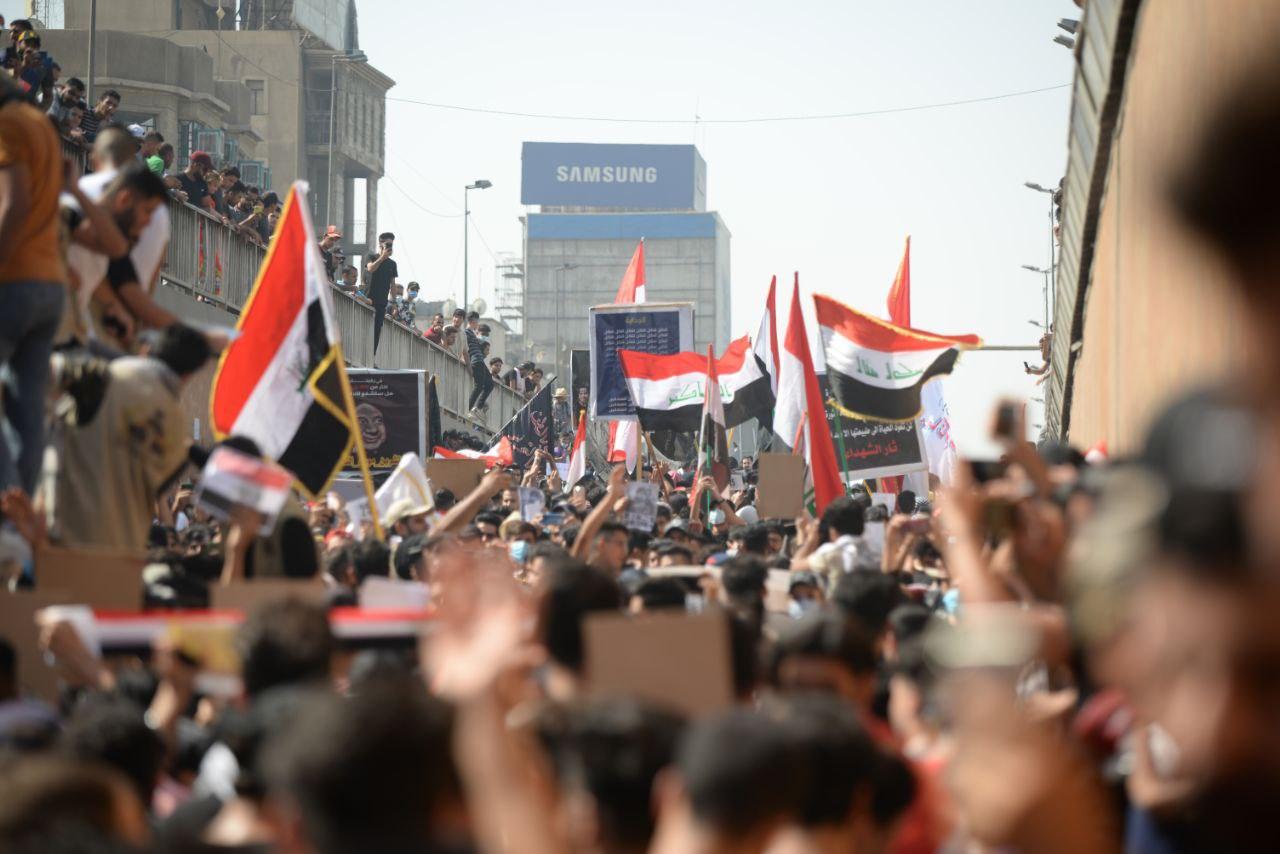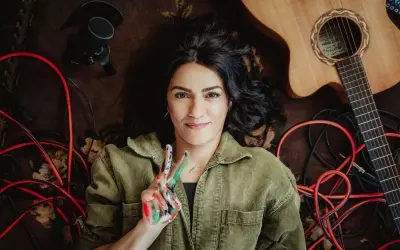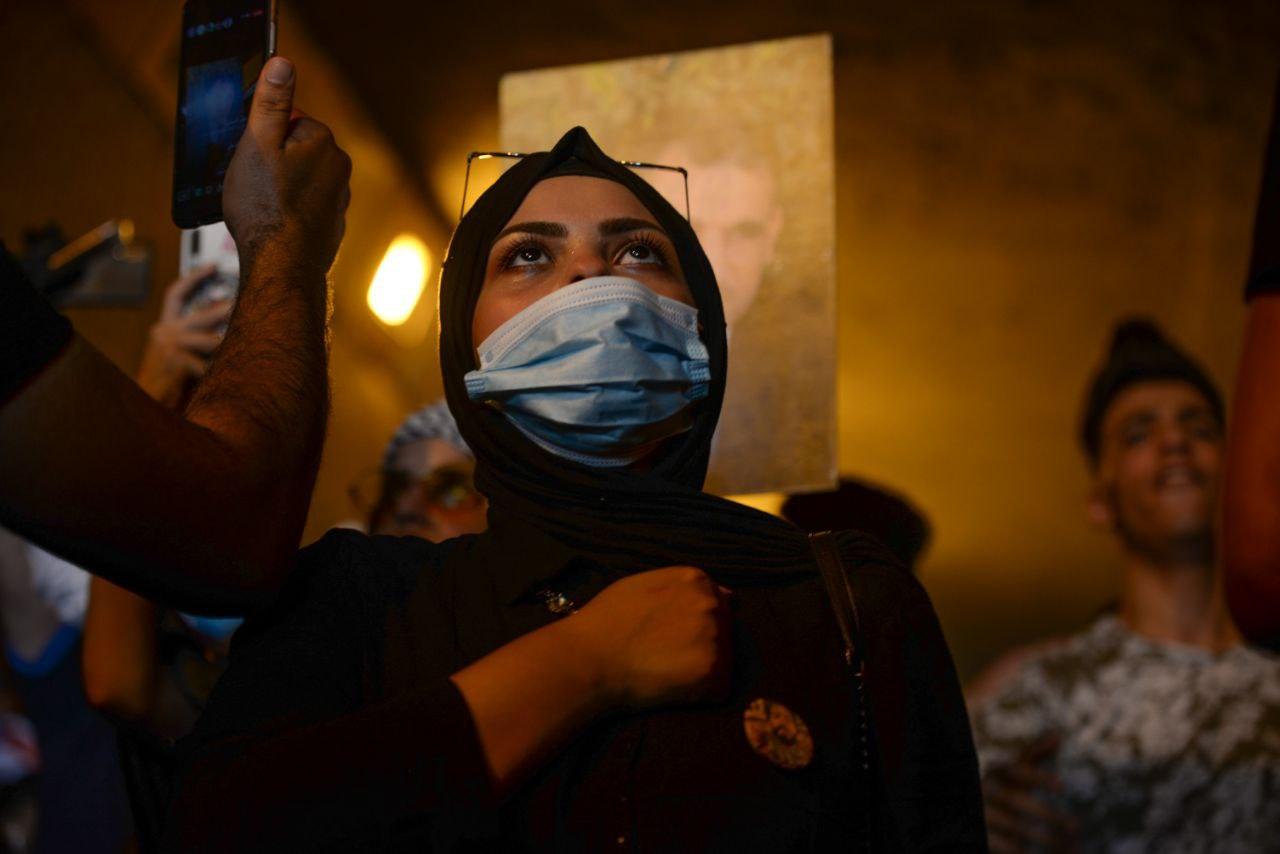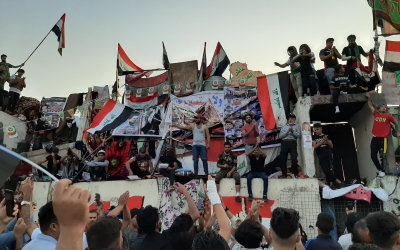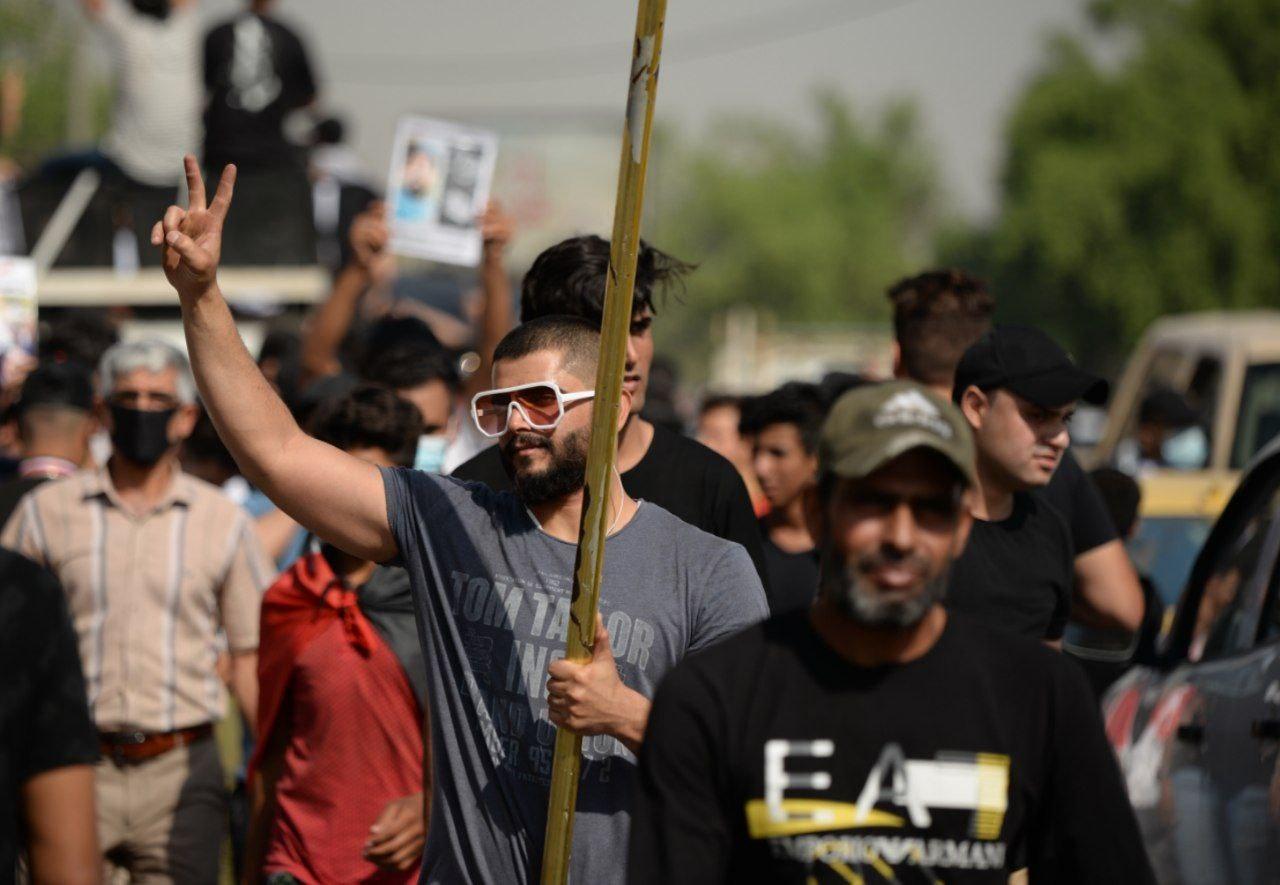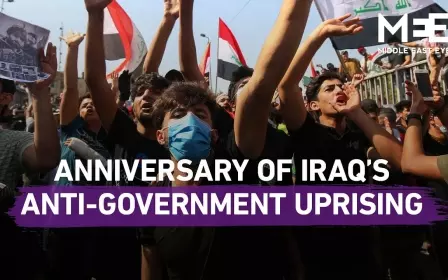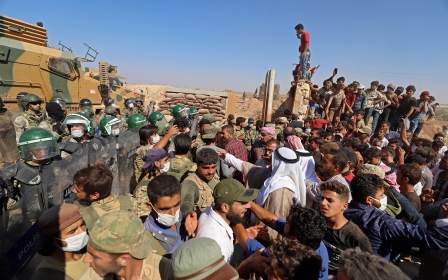Iraqis return to streets to mark anniversary of anti-government protests
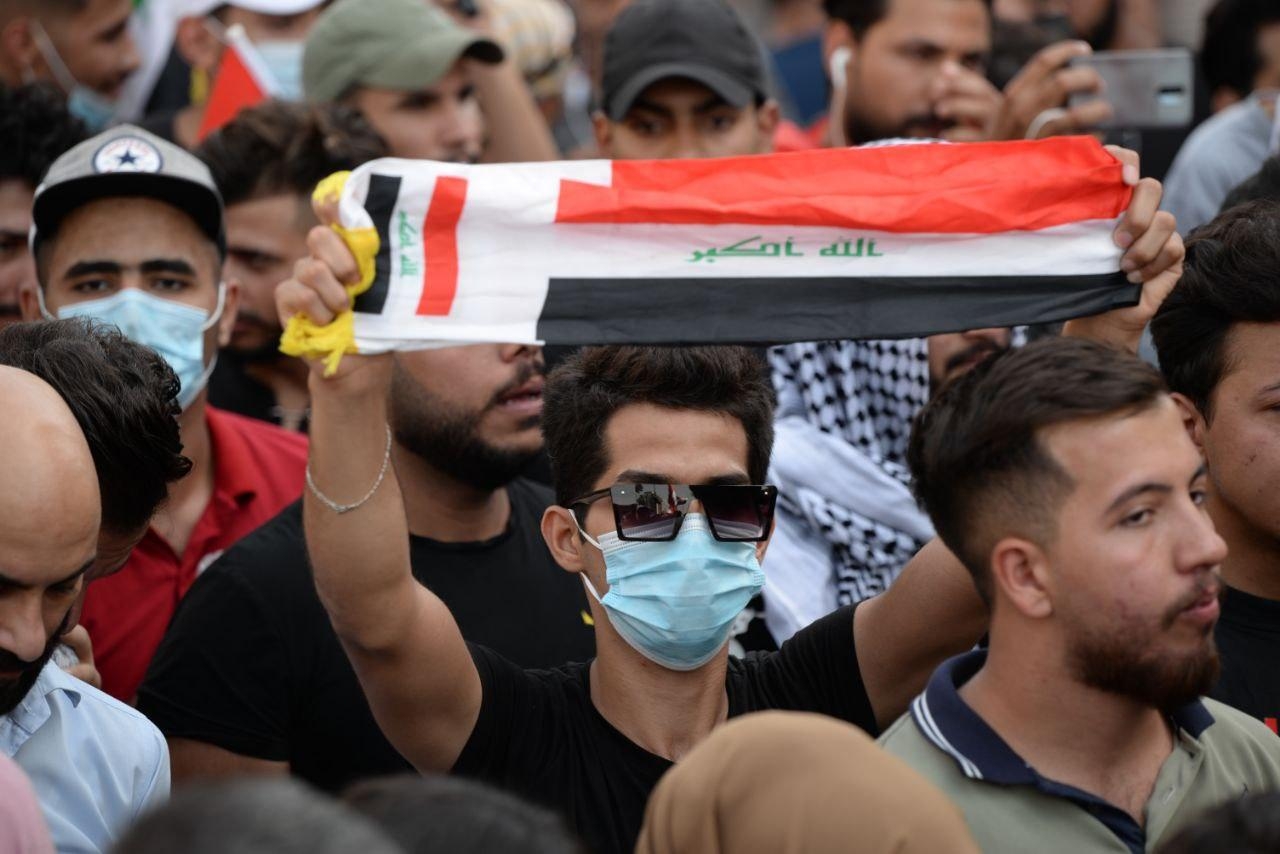
Iraqis took to the streets across the country on Thursday to mark the anniversary of anti-government protests that erupted last year before being forced to wind down amid internal splits, US-Iran tensions and a lockdown imposed by the coronavirus pandemic.
Protests resumed in the capital Baghdad and the Shia-majority southern provinces of Basra, Nasiriyah, Najaf, Wasit and Babil, with demonstrators demanding an end to corruption and unemployment and an overhaul of the ruling elite.
Protesters waved Iraqi flags and chanted slogans in support of the uprising, known in Arabic as "Thawrat Tishreen", while others sang patriotic songs and clapped.
"I hope this October movement will be stronger than the one in 2019," Ali al-Bawi, a 17-year-old from Baghdad, told Middle East Eye.
More than 600 people, mostly unarmed demonstrators, have been killed since the unrest began on 1 October 2019, with both security forces and unidentified gunmen shooting people dead.
New MEE newsletter: Jerusalem Dispatch
Sign up to get the latest insights and analysis on Israel-Palestine, alongside Turkey Unpacked and other MEE newsletters
On Wednesday night, Iraqis thronged Tahrir Square, the hub of the protest movement in central Baghdad, painted nearby walls with murals of those killed and decorated the area with lights and the country's flag.
Last year's protests gripped the country and triggered the resignation of Prime Minister Adel Abdul Mahdi, who was replaced in May by Mustafa al-Kadhimi, who has pledged to investigate the deaths and incarceration of hundreds of protesters.
Demonstrators on Thursday gave the government until 25 October to meet their demands or face a general strike.
"Kadhimi's government, just [like] the previous one, was granted a lot of time to take action but turned a deaf ear," al-Bawi said.
"We will wait until 25 October, if nothing changes, then protesters from all Iraq's provinces will come to Baghdad to make an open strike and we will call for [a] parliament resolution and formation of an emergency government,"
Kadhimi has called for a general election to be held in June 2021, roughly a year ahead of when it would normally be held, a central demand of the protesters, but Iraq's parliament must still ratify the election date and amend the election law.
The premier, who is struggling to stave off a steep budget deficit and potential economic catastrophe - largely brought about by declining oil prices and fallout from the Covid-19 pandemic - has also indicated he will be tough on militia groups, another key demand of protesters.
Iran-aligned groups frequently target US installations, and on Sunday, several Iraqi and US media outlets reported that Washington was planning to evacuate its embassy in Baghdad if Iraqi security forces failed to stop attacks against Americans.
Unidentified gunmen, believed by activists to be working on behalf of Iran-backed groups, have also been blamed for a slew of assassinations and forced disappearances of journalists and political activists.
"The government should reveal the fate of kidnapped protesters such as the lawyer Ali Jaseb and the activist Sajjad, who was recently kidnapped [by] unknown armed men," Sorror Abdul-Khalaf, a 23-year-old female protester from Baghdad, told MEE.
"We ask the authorities to protect the protesters and the activists and do not let the Iran-backed militias to kill them just due to their demanding for their rights."
Abdul-Khalaf also implored Kadhimi's government to respect Iraqis' constitutional right to gather and protest.
"The targeting of protesters and most prominent activists did not send us home, on the contrary, it encourages us to keep protesting until all our demands are met," Abdul-Khalaf said.
That view was echoed by Baghdad-based protester Ruaa Amer, who said she had not left Tahrir Square since last year.
"[For the last] three months, we [have been] encouraging people to attend this day through social media posts and also spreading awareness messages by emphasising our basic demands, which are to amend the election law and bring the killers of the demonstrators to the Supreme Court for justice," she said.
"The virus ... will not prevent us from demonstrating [against the] corrupt political class; the politicians who destroyed the country are more dangerous than the virus.
"We [continue to] stick with the health measures like wearing masks, using hand sanitisers and keeping social distance as much as possible, and we have teamwork in distributing masks to the protesters to avoid spreading the infection," Amer added.
Middle East Eye delivers independent and unrivalled coverage and analysis of the Middle East, North Africa and beyond. To learn more about republishing this content and the associated fees, please fill out this form. More about MEE can be found here.


